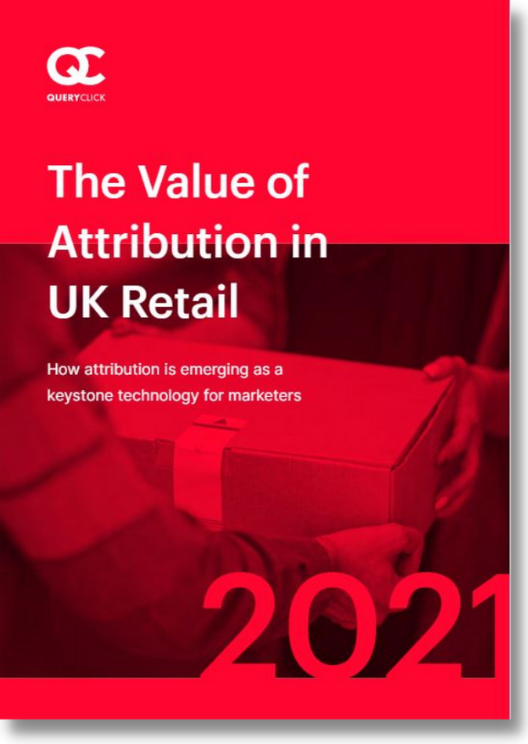Study Reveals AdTech, Data and Analytics Are Failing Marketers

A survey of marketing leaders in the UK retail sector has shown a deep mistrust of the data available which is seriously hindering their ability to perform effectively.
80% of senior retail marketers worry about bias in AdTech reporting, according to the survey. Those responsible for advertising budgets and their use believe that the returns they are getting are falsely inflated by incorrect numbers provided by the biggest AdTech players.
Data is the cornerstone of marketing, but there are huge concerns in the industry over the accuracy of the data provided by Facebook and Google. This has compounded underlying flaws in the value of data available in online analytics packages as well as the availability of data from other third-parties, such as Nielsen, who recently initiated an accreditation hiatus.
The survey was conducted in June by QueryClick, an independent marketing agency. Responses from 150 marketing leaders at online retailers with a minimum annual advertising spend of £500,000 confirmed that the industry is facing severe challenges with the trustworthiness and accuracy of performance data.
Third-party data
75% of retail marketers spend comparatively large amounts on Google and Facebook advertising yet are very concerned about how to grow revenue from these platforms thanks to channel saturation. This presents a sizable issue to the retail industry, especially when it comes to determining how to spend budgets to deliver ROI.
It is not just online data that is failing marketers. With Nielsen (an authority of TV ratings and advert viewing figures) having pre-emptively suspended their own industry accreditation following pressure from the Video Advertising Bureau due to the provision of inaccurate data, the ability of marketing and advertising decision makers has been reduced to little more than guesswork.
Chris Liversidge, CEO and Founder of QueryClick said:
“While the focus is on Nielsen right now due to their admission of failure to offer credible measurement for traditional TV, the real issue here is much larger: we have known for some time now that all marketing has become unmeasurable using our existing systems.”
Owned data
The scepticism over the veracity of the data provided by Google and Facebook is not the only challenge. Almost half (43%) of Performance Marketing Directors believe the data from their analytics platforms is ‘not very accurate’.
Furthermore, over 60% of respondents believe data to support cross channel decision making to be broken. In fact, a 2019 study by QueryClick found that up to 80% of the data in common analytics packages, including those from Google and Adobe, is wrong.
However, with 98% of survey respondents considering attribution to be at least ‘somewhat important’, and almost all stating attribution is a consideration when choosing their CRM platform, marketers currently risk catastrophic mismanagement of budgets.
This risk will become even more apparent with the impending removal of third-party cookies, which means that advertisers will have to use owned data (rather than that supplied by others) to target adverts at the right audience to be effective.
“The fact is digital marketing data is broken – and it always has been since the very first digital ad was served and reported on using these systems. Given there will be nearly £20bn spend digitally by advertisers in the UK alone this year, that’s an appalling state of affairs.
“It is good that advertisers are demanding better data – they have a right to expect better from the marketing industry given there are now proven technologies to replace those broken systems and offer a fair and accurate picture of how their media spend really performs.”
“The good news is that there are alternatives in the marketplace to allow marketers to show operational and fiscal effectiveness. Rebuilding online data using AI and Machine Learning can now show the true value of every marketing touchpoint online and off. This eliminates today’s inaccuracies and enables marketers to understand the value of each marketing channel, campaign, ad or even individual impression, empowering them to make better decisions.”
Own your marketing data & simplify your tech stack.
Have you read?
I have worked in SEO for 12+ years and I’ve seen the landscape shift a dozen times over. But the rollout of generative search engines (GSEs) feels like the biggest...
As you will have likely seen, last week Google released the March 2024 Core Algorithm Update. With it, comes a host of changes aiming to improve the quality of ranking...
After a year of seemingly constant Google core updates and the increasingly widespread usage of AI, the SEO landscape is changing more quickly than ever. With this rapid pace of...



